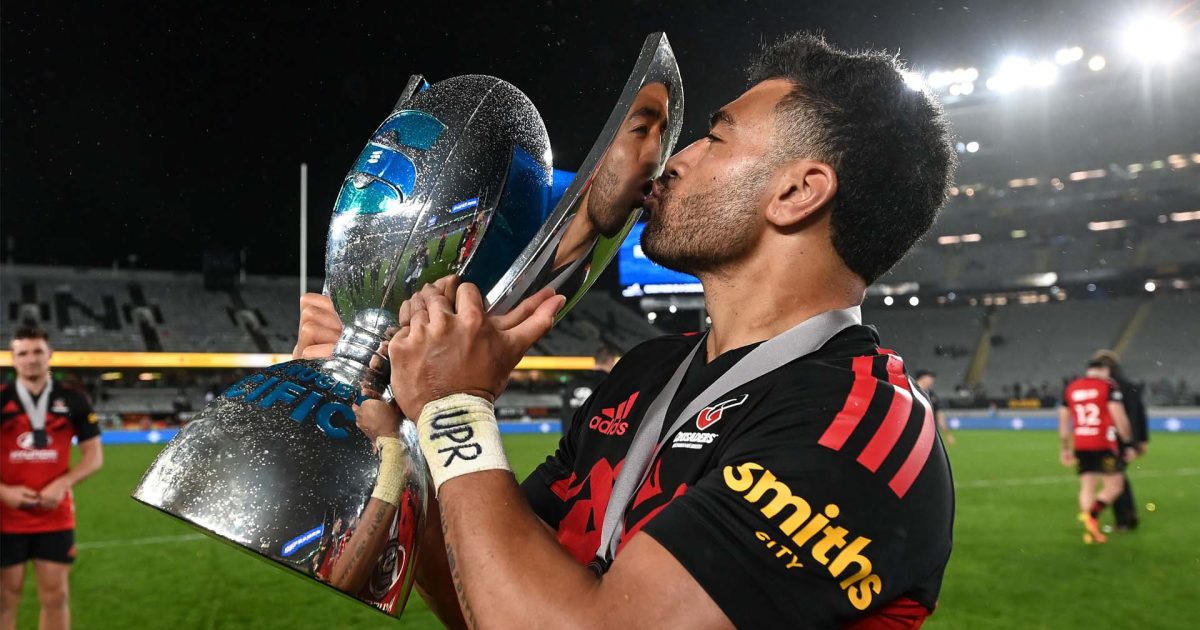'Those conversations never really sit still': What future holds for Super Rugby

New Zealand Rugby and Rugby Australia have agreed to a long-term joint venture between the unions which ties the two trans-Tasman neighbours together for the next eight years.
On Friday, the two unions announced a new governance model for Super Rugby Pacific, with the establishment of a nine-person board featuring representatives from both sides of the Tasman. The Board will oversee the competition with the purpose of a clear, unbiased focus on governance, and the creation of a consistent look and feel across the competition.
While the CEOs of both RA and NZR affirmed that there would be no changes to the competition structure just yet, Mark Robinson indicated to media that changes could still come in the future.
“The position is that it’s a round-robin with the same play-off format that we have now until otherwise mutually agreed by both parties,” he said. We think that it’s a really strong format; however, if in the future there is real appetite from commercial broadcast partners and fans to want to look at that format, then that’ll be something that we can look at.
“But to give stability to the competition, it is the format that’s been agreed until otherwise agreed otherwise. That is locked in because it would be a reasonably significant piece of work and then a lot of strong alignment and agreement to otherwise change that.”
Robinson also addressed the possibility of bringing in further sides from outside Australasia to complement the current 12 teams.
“Expansion teams would have to be something that both JV partners agree to and work obviously for the clubs and the national unions and the players,” he said. “So that’s a wider sort of medium-to-long-term conversation.
“Those conversations never really sit still or die. There’s constant conversations with Japan, especially, out of Asia and the Americas as it relates to Super Rugby in the future or professional rugby opportunities to work together so that’s something that although we can’t commit to what it might mean for expansion, they are always conversations that are sitting there.”
While it wasn’t always smooth sailing in the conversations between RA and NZR – with the former, in particular, going public with many of their expectations, Robinson said the desire from both parties ultimately got the core deal over the line and that other issues would be settled upon by the board.
“In a process like this with a lot of negotiation for a long term, which is complex, has lots of different stakeholders and partners involved with it, there’s often a very wide and long list at the start and then it narrows down, as you can imagine, near the end of that,” Robinson said. “And I think towards the end really there was obviously conversations – and they’re are no different to what was in public – around commercial value and creating a fair and equitable split around value.
“And then there are issues where possibly both unions were at different stages around things like format, player transfers, player eligibility, drafts, salary caps, where, in a lot of instances, it’s too soon to get too involved in detail around a lot of those competition mechanisms to slow us down unnecessarily at this time. So some of those things have been parked and they’ll be picked up by the JV board and national union where appropriate in due course.”
While NZ and Australia both have strict selection policies for their national sides, it’s been mooted that those laws could be relaxed to allow, for example, any New Zealand playing in Super Rugby to be eligible for the All Blacks, even if they represent an Australian club. As noted by Robinson, however, such changes can be addressed as a later date, now that an agreement has been reached.
Super Rugby Pacific will kick off on February 24 next year.

































